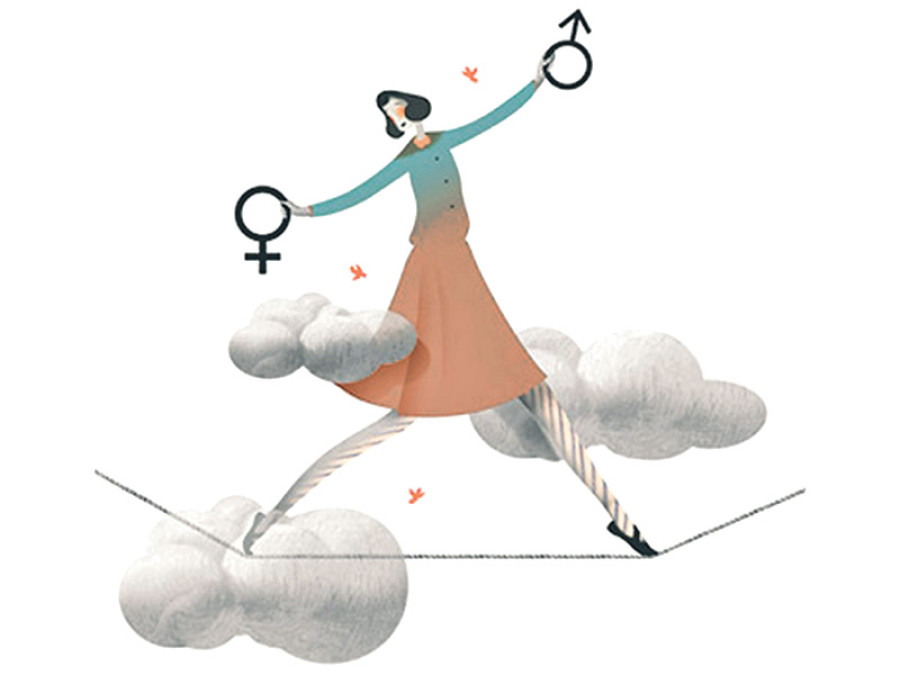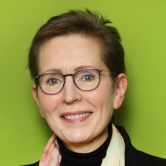Opinion
Women’s voices enrich public life
Building strong gender equal communities requires every individual citizen to stand firmly in the political landscape
Alaina B. Teplitz, Ingrid Dahl-madsen, Mashfee Binte Shams, Rensje Teerink, Valerie Julliand & W Swarnalatha Pereira
Women are assuming their rightful place in Nepali politics. They are registering as candidates and voters, running for political office, and fulfilling their civic duty from the most remote village to the nation’s capital. This not only sets the stage for equal political voices, but is also changing the way Nepal is governed.
However, there is much scope to accelerate the pace of change. Women face inequality and exclusion in many facets of Nepali society. But we all know that when women prosper, all of society flourishes, and political inclusion and participation, as well as access to education, are instrumental in attaining prosperity.
Commitment to SDGs
This road to prosperity is clearly outlined in the Agenda 2030. The Sustainable Development Goals, of which Nepal was one of the first nations to draft a road map for achievement, emphasise the central role of gender equality throughout, including women’s active participation in political, economic, social and public life. And with the elections and appointments of women to high-level positions, Nepal is demonstrating its commitment to the SDGs, its own social and political contracts, and its ability to transform conceptions of traditional gender roles.
Today, Nepal’s three branches of government—executive, legislative and judiciary—are all headed by women: President Bidya Devi Bhandari, Speaker of Parliament Onsari Gharti Magar, and Chief Justice Sushila Karki. Also, the 2015 Constitution of Nepal stipulates that women must constitute one third of the seats of Parliament and occupy 40 percent of local level political positions. As of 2017, women represent 29.6 percent of legislative positions in Nepal, ranking 48th in the world ahead of Australia, Canada, and USA, and number one in South Asia.
More than numbers
Nonetheless, women’s participation is about more than numbers or filling quotas. Their participation transforms decision making in the political sphere. While there are reserved seats for women, they are eligible for the general seats as well. More inroads must be made in addition to the impressive national-level participation of women. At the local level, women are also crucial not only as voters, but candidates contesting elections, chairing committees, and as ministers implementing policies that benefit everyone.
Despite a relatively gender balanced birth rate, today for every 100 women, there are only 94 men. This is because of a mass economic migration pattern leaving women to take on more non-traditional gender roles out of necessity. But the hardships are great, particularly in rural areas. Girls are less likely to stay in school, and as women, they carry the lion’s share of the work and home burden, and are often unpaid for their labour. They are also more vulnerable to crime and gender-based violence.
This vulnerability was never more obvious than during and following the decade-long conflict. Women and girls were overwhelmingly affected and yet they played a minor role in the peace process. Conflict-related sexual violence still remains outside the formal peace process, disempowering the women and girls whose lives were impacted in the conflict. To effect change, they must be supported and be heard. They must know that they are the agents of change.
Role models
Role models like Bidya Devi Bhandari, Onsari Gharti Magar and Sushila Karki demonstrate that women and girls in Nepal can participate and be leaders. When girls see women in positions of power, it inspires them to follow in their footsteps because they see themselves in these roles. Often big changes start with a small step: women candidates registering and campaigning, and women turning up to vote form part of that change for greater gender equality, representation and prosperity.
We must do our part to encourage and support women and girls to get involved. And we must also ensure that men and boys recognise the need for women’s participation. Building stronger gender equal communities from the ground up requires that every individual citizen sees and stands firmly in the political landscape, knowing that their voice—woman, man or third gender—will define the future of Nepal.
Julliand is UNDP Resident Representative in Nepal; Teplitz is US Ambassador to Nepal; Shams is Bangladeshi Ambassador to Nepal; Teerink is EU Ambassador to Nepal; Pereira is Sri Lankan Ambassador to Nepal; Dahl-Madsen is Charge d’Affaires ep, Danish Embassy




 22.12°C Kathmandu
22.12°C Kathmandu











